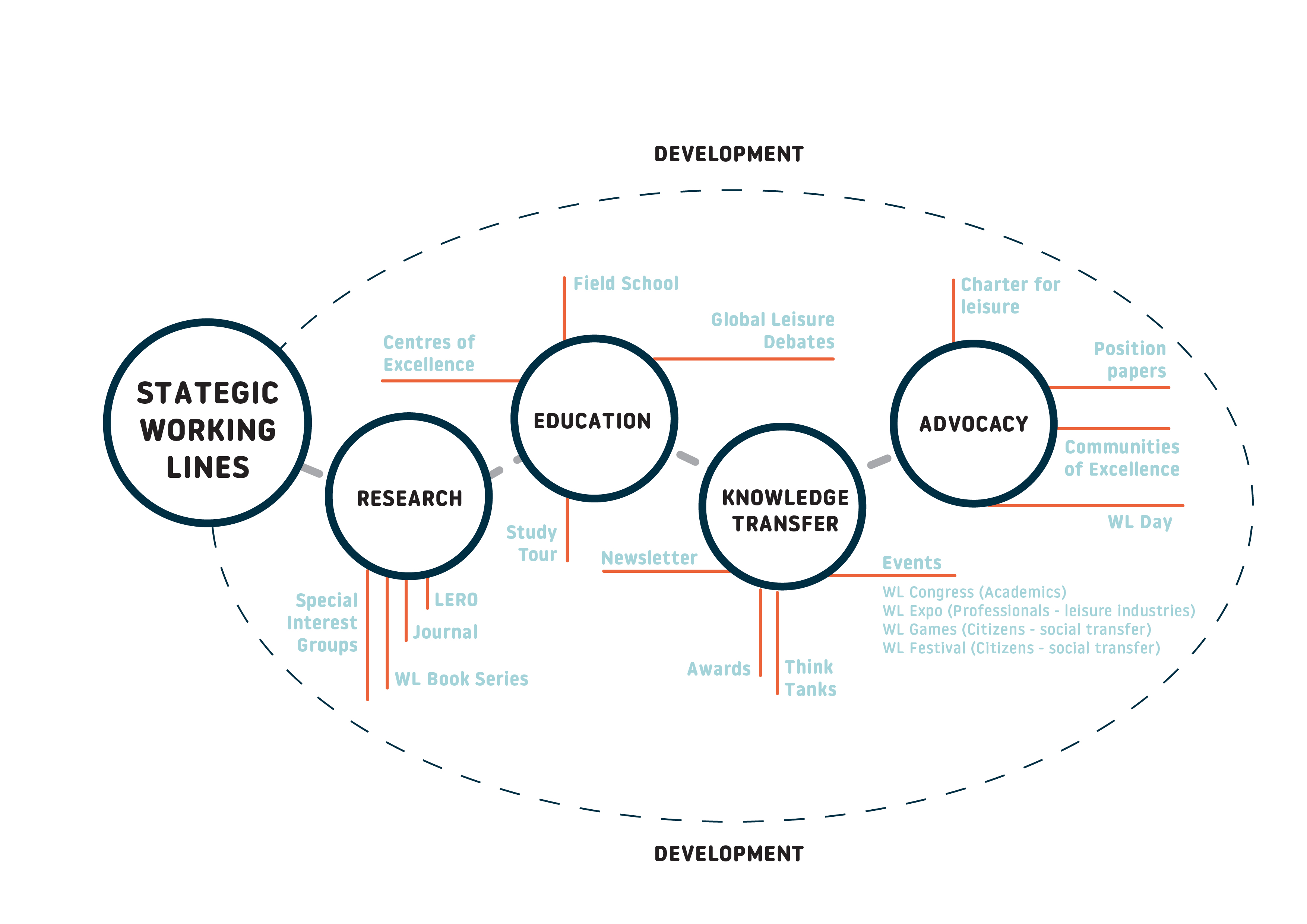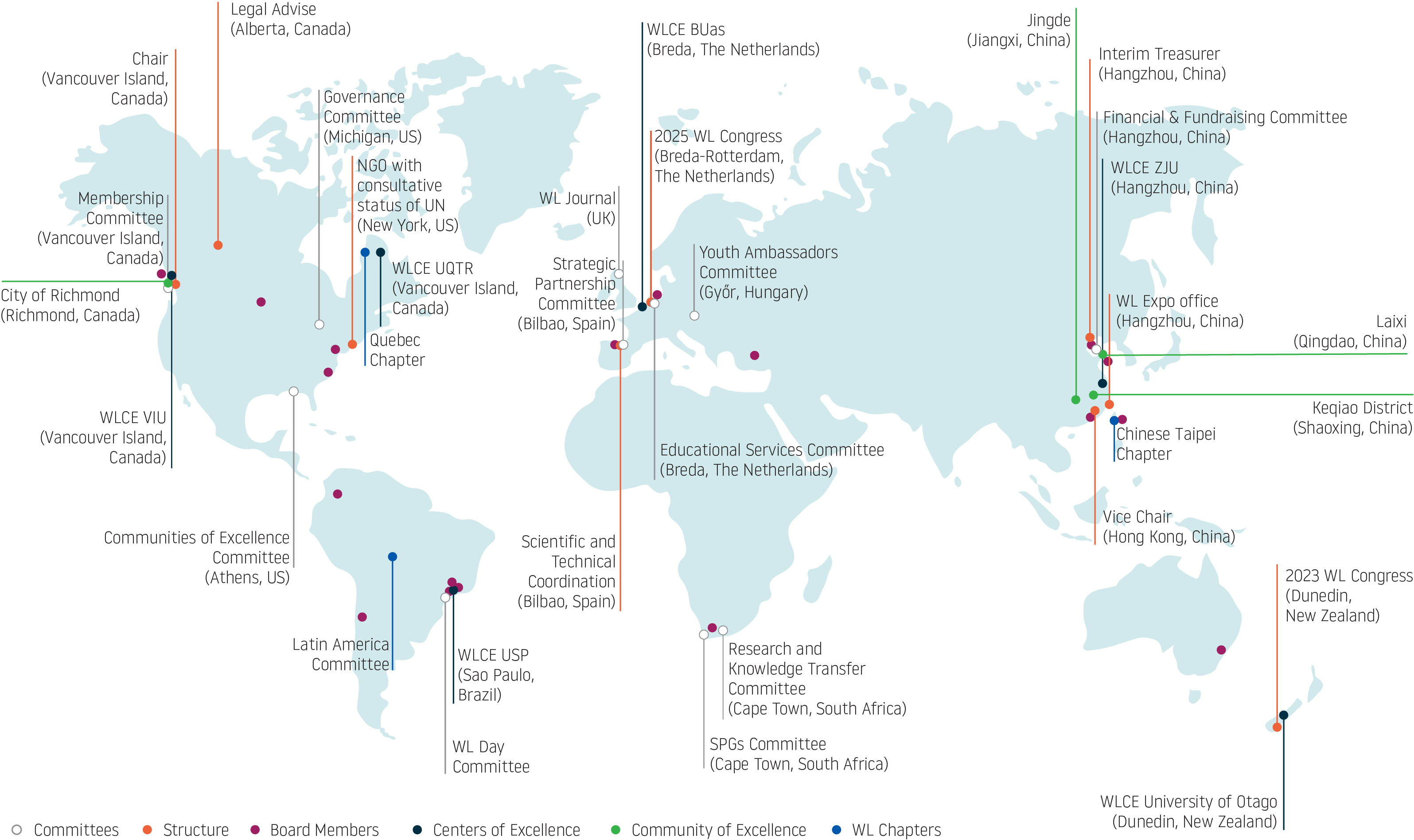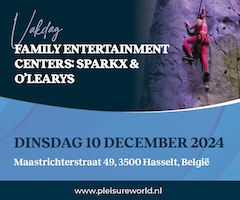The internationalisation perspective of the World Leisure Organization
Introducing its World Leisure Centers of Excellence Network programme

An entire chapter from the World Leisure Organization (WLO) has been contributed to this edition of Uncover. This first article introduces the World Leisure Organization including the phenomenon of World Leisure Centers of Excellence (WLCEs). This is followed by articles from WLCEs from Brazil, Canada, China and New Zealand. BUas, which is a WLCE too, finally concludes the chapter including a look into the future at the World Leisure Congress in 2025, which will take place in the Netherlands in Breda and Rotterdam.
Dr Arianne Reis is associate professor of Leisure and Recreation studies at Western Sydney University and she is the coordinator of the WLCE Network.
The WLO
Formed in 1952, the World Leisure Organization is a not-for-profit, non-governmental body that brings together individuals and organisations from throughout the world to promote leisure as integral to social, cultural, economic, and sustainable environmental development. The WLO is governed by a Board of Directors, consisting of up to 20 individuals elected by the organisation’s members, who are committed to leisure as a human right and work as an advocacy group to promote leisure as a force for community betterment. Their work aims to foster socio-cultural development, encourage sustainable economic growth, and enhance the quality of life for people worldwide.
In addition to the Board of Directors, the Executive Committee serves as the steering body of the WLO. It comprises the organisation's officers (Chair, Vice-Chair, and Treasurer), the Chief Operating Officer, and up to five members of the Board. Members of this Committee are elected by the Board and collaborate in shaping the organisation's strategic plan. Various ad hoc committees, established annually, contribute to the development of this plan, serving as crucial task forces within the organisation. Additionally, with a keen focus on nurturing future scholars and practitioners, the WLO actively supports and promotes Youth Ambassador projects and activities through its various programmes.
We strongly believe that leisure can enhance the quality of life for everyone.
The WLO achieves its mission, vision and goals through its programmes and activities that are developed according to four main strands: advocacy, research, education, and knowledge transfer.
Enhancing the quality of life
The WLO strongly believes that leisure can enhance the quality of life for everyone, from childhood through to later years. Its membership spans across the globe and includes individuals and organisations involved in various fields including travel and tourism, parks and recreation services, the arts and culture, sport, health and fitness, theme and entertainment centres and educational institutes.
As a global advocate and knowledge-driven organisation focused on its members, the WLO is dedicated to understanding the significance of leisure in improving the well-being of individuals, communities, and nations. It actively promotes the benefits of leisure and strives to ensure that everyone has access to leisure, advocating inclusion and equal opportunities for all.
Strategic partnerships
The WLO actively engages in collaborations with various strategic partners, NGOs, and public and private sector organisations to advance common objectives related to leisure advocacy and social, cultural, and economic development. The World Leisure Organization’s most prized partnership is with the Economic and Social Council of the United Nations. Being recognised as a consultative organisation by the Council allows the WLO to support the UN's work by incorporating its objectives into its own programmes and services. Through the WLO Chapters Programme, individuals at community, city, state, provincial, regional, or national levels can affiliate with the organisation, aligning their efforts with its broader vision, priorities, and themes. Similarly, the World Leisure Affiliate Programme seeks collaborative relationships with organisations worldwide, including educational institutes, governments, and non-governmental organisations seeking to associate with the WLO. Current strategic partnerships include prominent entities such as the United Nations, the World Tourism Organization, and others like the American Academy for Leisure, the International Council of Sport Science and Physical Education (ICSSPE), the Australian and New Zealand Association for Leisure Studies (ANZALS), and the Organisation Internationale du Tourisme Social (OITS - ISTO).

Working together globally
The governance model of the World Leisure Organization is decentralised, with the scientific and technical secretariat functioning as the hub from Bilbao, Spain, and academic and professional task forces dispersed globally. Notable leadership positions include the WLO Chair in Canada, the Vice Chair in Hong Kong, and the Treasurer in China. Close international communication and collaboration with local teams facilitate the organisation of the WLO's major events such as congresses, expos, games, and festivals. For instance, representatives from the University of Otago in Dunedin (New Zealand) organised the 17th World Leisure Congress, while Breda University of Applied Sciences in the Netherlands is preparing to host the 18th World Leisure Congress. Additionally, Hangzhou's local municipality has facilitated a number of World Leisure Expos since its inception in 2006. Another significant aspect is the World Leisure Journal and its editor-in-chief, headquartered in Scotland, which amplifies the voices of academics worldwide. With representation across the globe, the World Leisure Organization embodies a global, multicultural, and diverse community.
WLCE
A key strategy for the continued internationalisation of the WLO are the World Leisure Centers of Excellence (WLCEs). The WLCEs constitute an international network of graduate and postgraduate education. It offers colleges and universities the chance to partner with the WLO to establish educational programmes and research centres focusing on various aspects of leisure, such as play, recreation, arts, culture, sports, festivals, health, fitness, travel, and tourism with a global perspective. This collaboration provides students, educators, researchers, and professionals with unique opportunities to engage in theme-focused educational activities.
Currently, there are six WLCEs spread across five continents.The programmes within the Centers of Excellence network receive robust organisational and promotional support from the WLO. A member of the Board coordinates the network's activities, while the WLO Secretariat offers institutional support. Through these channels, the WLO promotes leisure studies conducted by WLCE, shares WLCE publications via the WLO’s website and social media platforms, advertises upcoming WLCE events, and facilitates collaboration and exchange opportunities among staff and students across all WLCE institutes. Additionally, WLCE partners have the privilege of displaying the WLO logo on their websites and key documents, further enhancing their visibility and credibility internationally.
Currently, there are six WLCEs spread across five continents: two in North America, one in South America, one in Europe, one in China and one in Oceania. These WLCEs represent some of the best educational institutes teaching leisure studies at a postgraduate level in the world, teaching in English, Mandarin, Portuguese, French, and Dutch: Vancouver Island University, Breda University of Applied Sciences, University of Otago, Universidade de São Paulo, Zhejiang University, and Université du Québec à Trois-Rivières. Their teams include world-renowned researchers in the leisure field, in areas as varied as tourism, community development, sustainable leisure management, games and media, events, gastronomy, creativity and space, strategic design, sport industry and management, martial arts and traditional sports, among other things.

Among some of the activities that members of the WLCE network have engaged in are student and staff exchanges, field trips, work placements, guest lectures, visiting scholars, master classes, collaborative research projects, joint thesis supervision and international seminars. Being part of such an international network has the potential to create numerous opportunities for members, including students, to collaborate and learn from a global community with international expertise in the interdisciplinary field of leisure studies. It creates a platform for international visibility, partnerships, and cooperation in teaching and research.





































































